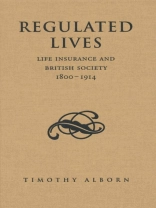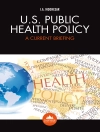Regulated Lives explores the British life insurance industry”s changing assessments of the values and risks of human life between 1800 and 1914. Timothy Alborn”s unique study uses insurance practices to demonstrate how Victorian ideas about the lived experience altered both to accommodate and resist elements of modernity such as statistical thinking, medicalization, and capitalist bureaucracy.
The nature of Victorian life insurance companies meant that their customers were both consuming subjects and objectified abstractions. Policyholders were active consumers of a product as well as passive objects which were evaluated for ”risk” in the objective and homogenizing terms determined by the industry. By examining how salesmen, actuaries, and doctors utilized their differing conceptions of what the various aspects of people”s lives meant, Regulated Lives suggests that the very complexity of modern commercial and social institutions produces space where individuality can flourish.












